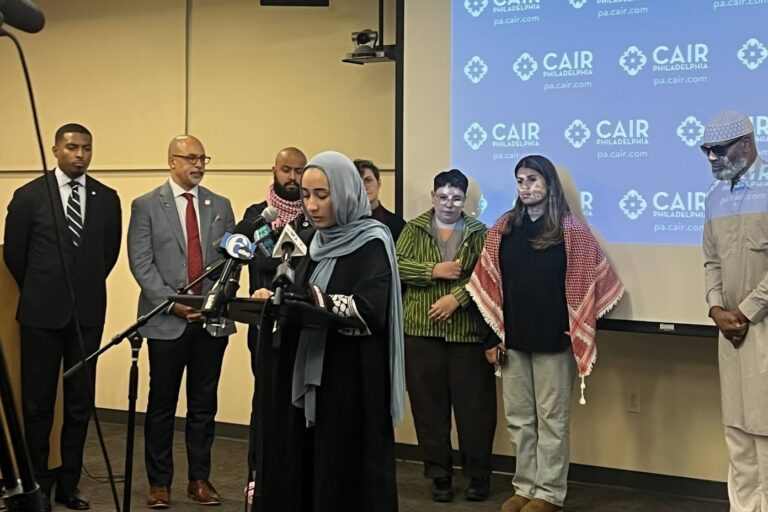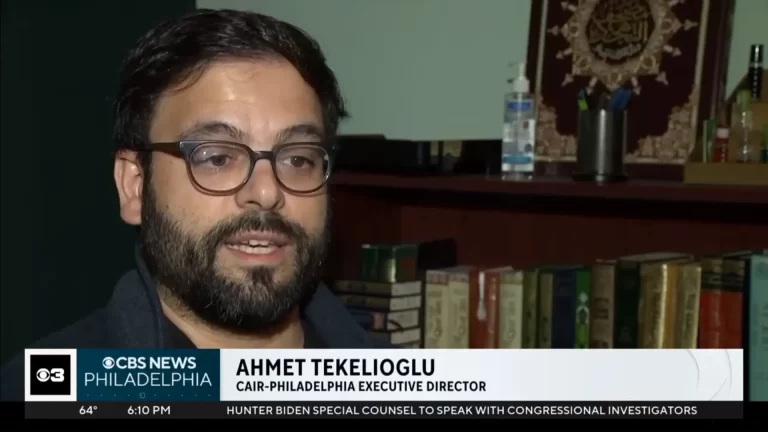![]()
by David O’Reilly
Philadelphia Inquirer
Again and again the grainy FBI videos flickered across TV screens Thursday, and the whole nation leaned in to study two nameless young men in backpacks.
But their faces and clothing revealed nothing as they strolled toward the site of the Boston Marathon bombings. The alleged killers looked like two ordinary Americans in baseball caps.
Then, overnight, came their names, news of a high-speed police chase, a fatal gun battle, and clues to their identities. They were immigrants. Ethnically Chechen.
They were Muslim.
“Unfortunately, there’s a double standard in the public’s view when an atrocity like this hits,” said Qasim Rashid, national spokesman for the national Ahmadiyya Muslim community.
“Who asked what religion Adam Lanza was?” asked Rashid, referring to the young man who mowed down 20 schoolchildren and six adults in Newtown, Conn., last year.
“If a non-Muslim commits an act of terrorism, they are thought of as responsible only for themselves. But when a Muslim, the entire Muslim community is brought in.”
Rashid’s was a view echoed Friday by local and national Muslim leaders.
“A terrorist is a terrorist. A killer is a killer,” said Quresh Dahodwala, a nuclear physicist who lives in Cherry Hill. “To identify them with their religion is not fair.”
“I am appalled. My heart goes out to all the victims” of the Boston bombings, said Dahodwala, a leader in the South Jersey Muslim community who helped create mosques in Cherry Hill and Voorhees.
“But it is a human tragedy,” he said. The religion of the alleged bombers “cannot be an issue in this whole story.”
Law enforcement officials have given no indication that religious faith or extremist views motivated the bombings that 26-year-old Tamerlan Tsarnaev and his 19-year-old brother, Dzhokhar, are alleged to have committed.
The two came to the United States in 2002 from a mountainous region of Central Asia that had seen more than a decade of grisly separatist warfare as the predominantly Muslim Chechen area fought for independence from Russia.
Based on their social media postings, both men appear to have endorsed Chechen nationalism, but acquaintances in the Boston suburb of Cambridge say they rarely talked politics.
“I don’t have a single American friend. I don’t understand them,” Tamerlan, an aspiring boxer who did not smoke or drink, reportedly wrote in an essay several years ago. He was killed in a police shoot-out late Thursday, possibly by a bomb he was wearing.
Dzhokhar Tsarnaev, who on his social media page listed his world view as “Islam,” was reportedly failing many of his courses at a state college.
Rugiatu Conteh, outreach director for the Philadelphia office of Council on American-Islamic Relations (CAIR), said Friday her office had not received any calls from community members or mosques reporting harassment since the Tsarnaevs’ faith was made public.
“But we generally don’t get that in our area,” she said. “People are generally tolerant in Philadelphia.”
Ibrahim Hooper, CAIR’s national spokesman in Washington, said the Boston bombings had “brought out the usual hate-mongers” on the Internet who “exploit these kinds of incidents to further their anti-Islamic agendas.”
“But I believe we as a nation have matured [since the 911 attacks] past the point where most people react reflexively to these kinds of incidents.”
Dahodwala said he hoped that religious faith did not motivate the ghastly killing spree. But if so, “they were misguided,” he said. “God doesn’t tell anybody to kill your brother.”





